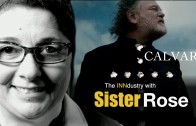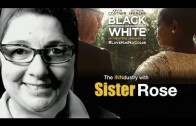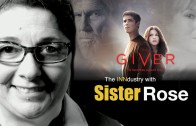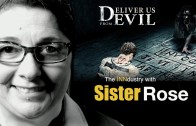Sin and virtue meet in thoroughly Catholic story of 'Calvary'
It’s present day in County Sligo, Ireland, and Fr. James Lavelle (Brendan Gleeson) is sitting in the confessional waiting for penitents. A man begins speaking, telling about the horrific sexual abuse by a priest that he endured over several years. Lavelle asks him if he’s reported the priest. No, he’s dead. Are you getting help? You mean therapy so I can move forward with my life? No.
Then the man tells Lavelle that he is going to kill him, because what good would it do to kill a bad priest? No, he isn’t going to kill Lavelle now. Instead, he tells Lavelle to meet him on the beach on Sunday morning, a week away.
Lavelle speaks with Bishop Garret Montgomery (David McSavage) and they quickly, and accurately, establish that the seal of confession does not apply because the man didn’t state his sins or ask forgiveness. The bishop asks if Lavelle knows who the man is and Lavelle admits that he does. When Lavelle asks if he should report the threat to his life to the police, the bishop says, oddly, that it’s up to him to decide what to do.
In “Calvary,” Gleeson gives a superb performance and is totally believable as a good priest carrying a burden he never asked for. In one of the saddest moments in the film, Lavelle is taking a walk down a country road and comes upon a young girl walking toward the beach. They start up a conversation but when the girl’s father drives up in search of his daughter, he screams at the priest, grabs the girl and drives away. What’s wretched about this scene is that it highlights the broken trust caused by the clergy abuse scandal and ensuing cover-ups. What will it take to change this? That a good man lay down his life for others?
One of the first things Lavelle does is to greet his troubled daughter, Fiona (Kelly Reilly), who is home from London to visit him after a stint in rehab. The priest had been married and was ordained after his wife’s death.
Then Lavelle acquires a handgun from the police inspector under the pretense of needing to put his dog down.
As the days of the week pass, Lavelle encounters many of the town’s citizens and confronts an array of bad behavior. He asks Jack (Chris O’Dowd) about his wife Veronica’s (Orla O’Rourke) black eye and visits an American writer (M. Emmet Walsh), with whom he has become friends. Lavelle arrives on an accident scene to give the last rites to an Italian man before dying and comforts his wife. He challenges Simon (Isaach De Bankolé), an immigrant from Africa, about his affair with Veronica. Meanwhile, the youngish associate pastor, Fr. Leary (David Wilmot), begins to question his vocation.
When Lavelle discovers his beloved dog dead on his doorstop one night, it’s more than he can take and he seems overwhelmed yet resigned, in a world-weary way, to events about to unfold. Next, someone burns down the small church.
“Calvary” is a film that American Catholic novelist Flannery O’Connor could have been writing about:
The novelist with Christian concerns will find in modern life distortions which are repugnant to him, and his problem will be to make these appear as distortions to an audience which is used to seeing them as natural; and he may well be forced to take ever more violent means to get his vision across to this hostile audience. When you can assume that your audience holds the same beliefs you do, you can relax a little and use more normal ways of talking to it; when you have to assume that it does not, then you have to make your vision apparent by shock — to the hard of hearing you shout, and for the almost blind you draw large and startling figures.
“Calvary” premiered at the Sundance Film Festival in January and won the Ecumenical (Panorama) Prize at the Berlin Film Festival in February. Director/writer John Michael McDonagh, who wrote and directed the 2011 film “The Guard,” also starring Gleeson, has created a thoroughly Catholic story here. Sin and virtue meet, seething violence and profound peace clash, commandments irritate and sacraments comfort — and goodness and absolution win.
[Sr. Rose Pacatte, a member of the Daughters of St. Paul, is the director of the Pauline Center for Media Studies in Los Angeles.]








